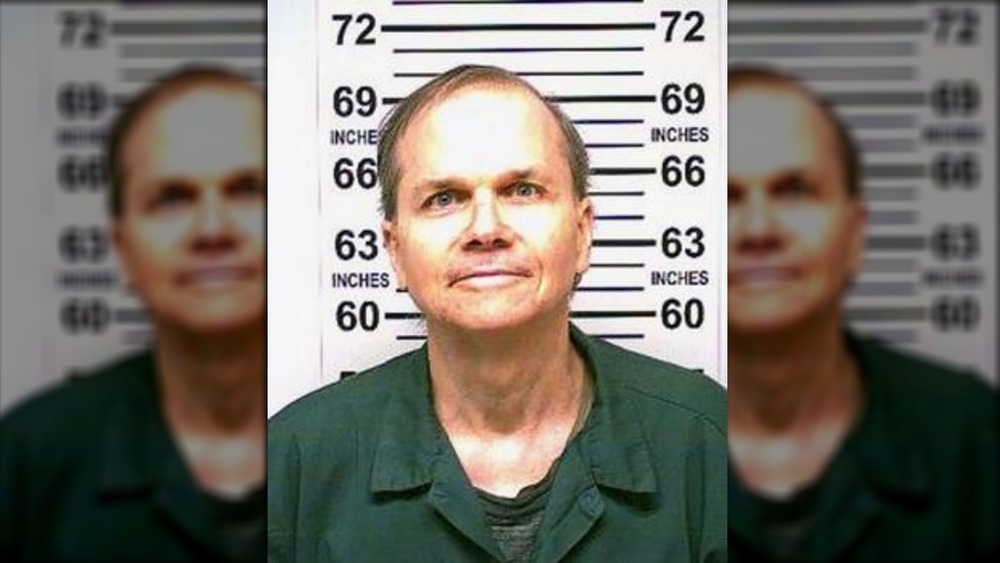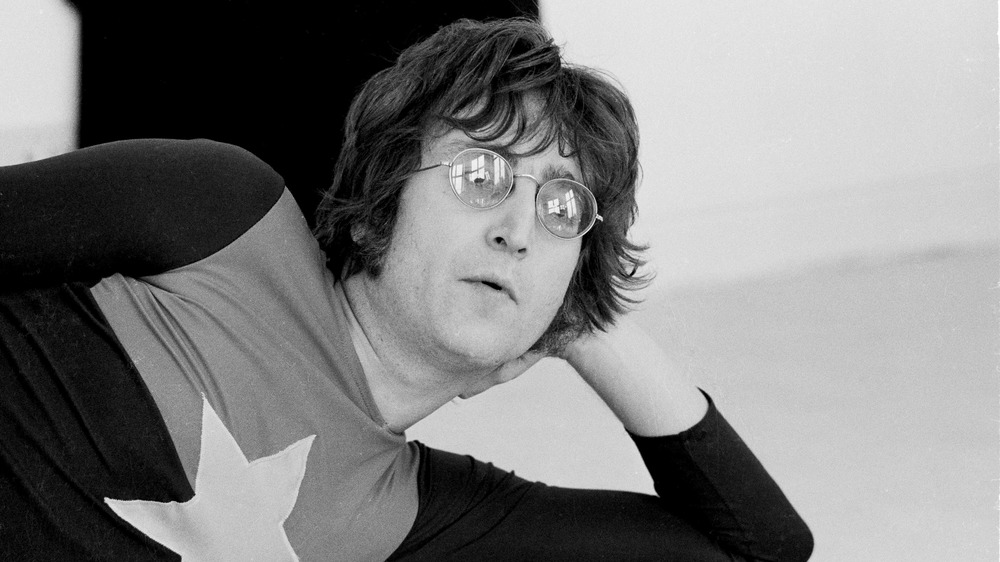What Happened To The Man Who Killed John Lennon?
In 1966, John Lennon told a reporter that the Beatles were "more popular than Jesus," then promptly forgot he'd ever made the remark. According to Beatles Interviews, John said, "I don't know which will go first, rock 'n' roll or Christianity. Jesus was all right but his disciples were thick and ordinary. It's them twisting it that ruins it for me." That comment was published in the London Evening Standard to some minor grumblings of a few irked Englishmen, but it did not go on to cause much of a stir.
When the news crossed the pond, however, American Christians didn't take too kindly to what he'd said. Although the comment was obviously more a critique of Christians' distortion of the teachings of Jesus Christ (see: the KKK, the inquisition, Scott Stapp, and so forth.), the notoriously uptight demographic was offended by the offhanded remark and launched an all-out Beatles boycott that included burning albums and associating the Fab Four with the devil's politics, Communism. After the anti-Beatlemania died down, the whole thing appeared to be nothing more than the religious right throwing a holier-than-thou hissy fit. No harm done, right? Unfortunately, little did Lennon know that he had actually sealed his fate the day he said those words, for they had a profound effect on a young man from Fort Worth, Texas, named Mark David Chapman, who shot and killed John Lennon on December 8, 1980.
Mark David Chapman killed John Lennon for his 'blasphemous' lifestyle
Chapman actually started out a Beatles fan. According to Jack Jones's 1992 book Let Me Take You Down: Inside the Mind of Mark David Chapman, the Man Who Killed John Lennon, Chapman was turned on to psychedelic drugs like LSD from listening to the Beatles' Magical Mystery Tour album. "The Beatles by then were into long hair, beards, meditation, and drugs," he said. "The Beatles were into things that fit my life perfectly." Although the hippie life made him feel like he finally fit into a group, he soon began to question his lifestyle after attending a church retreat. Then after a hippie friend stole money out of his wallet — an experience that left him "crying, desperately crying" — he pulled a complete about-face. Those who knew him said the change was drastic and intense.
Chapman seemed to take Lennon's comment particularly hard. A woman who knew him at the time said that he considered it blasphemy. She and other friends recalled how he often sang his own clever rendition of the former Beatle's "Imagine": "Imagine John Lennon is dead." But according to People magazine, Chapman did more than imagine such a world. "It was almost as if I was on some kind of special mission that I could not avoid," he said. That mission led to police finding him reading a dogeared copy of J.D. Salinger's The Catcher In the Rye just after he killed John Lennon.
John Lennon's killer claimed that acting on the 'will of God' made him sane
According to The Secular Web, Chapman strongly identified with Salinger's protagonist, Holden Caulfield, and his antipathy for "phonies." He considered Lennon to be one of these phonies, and so the Beatle had to go.
During his trial for the crime, Chapman initially put in a plea of insanity, which would make sense, considering the facts, but he later changed it, claiming that he took the murderous action because God told him to do it. For some reason, this didn't prove his insanity.
Chapman was sentenced to 20 years to life in prison. The judge also ordered psychiatric treatment. During his first years in prison, he was housed apart from the general population due to fears that other prisoners who were fans of John Lennon might harm him. He came up for parole in 2004, but according to CNN, it was denied him. The transcript of his parole hearing, posted to CourtTV, he planned to try and use his past as a discipling tool if he were to be released. "I would immediately try to find a job, and I really want to go from place to place, at least in the state, church to church, and tell people what happened to me and point them the way to Christ," he told the parole board. Those on the board felt that such a disciple wouldn't benefit society, and as of this writing, Chapman remains in prison.


